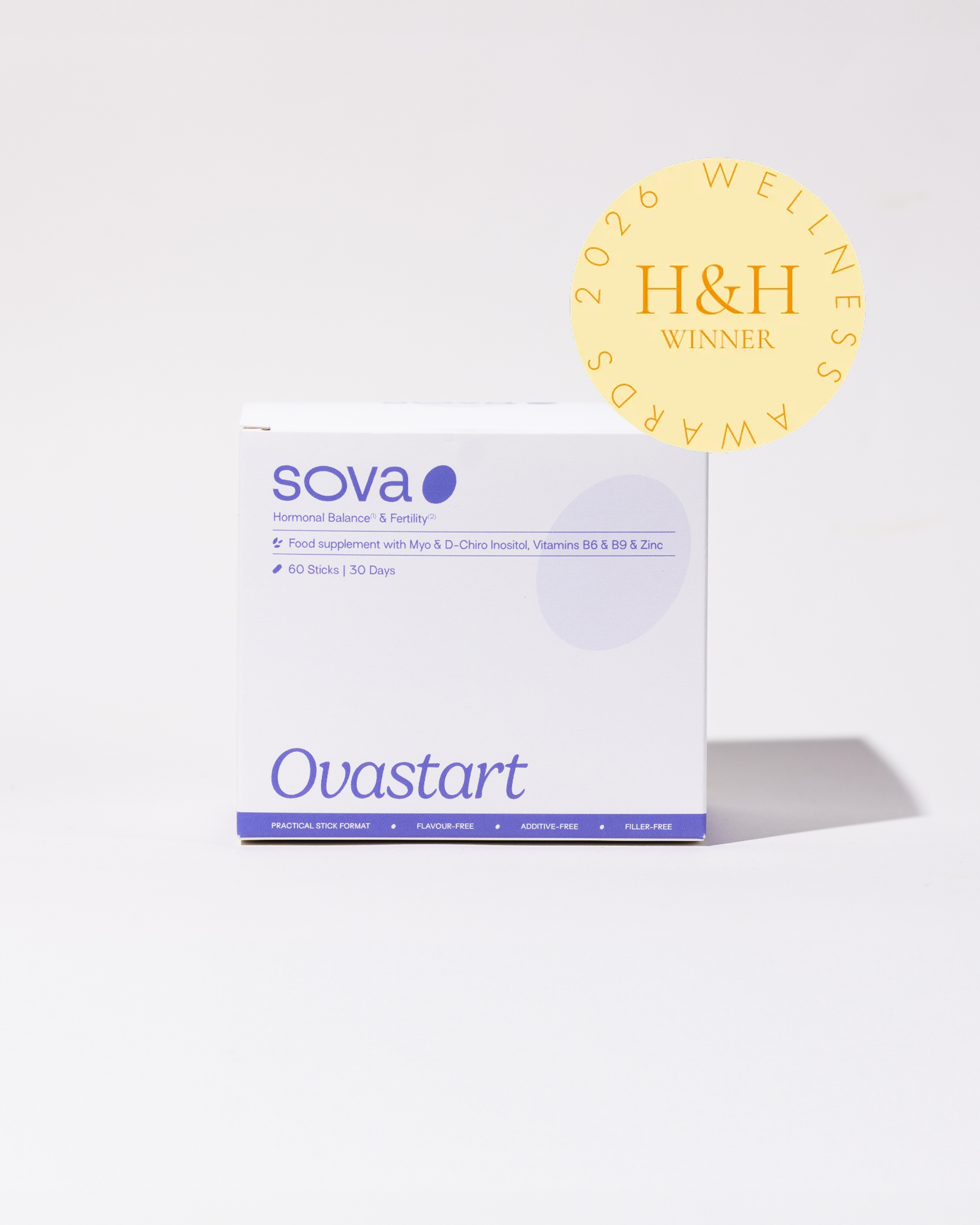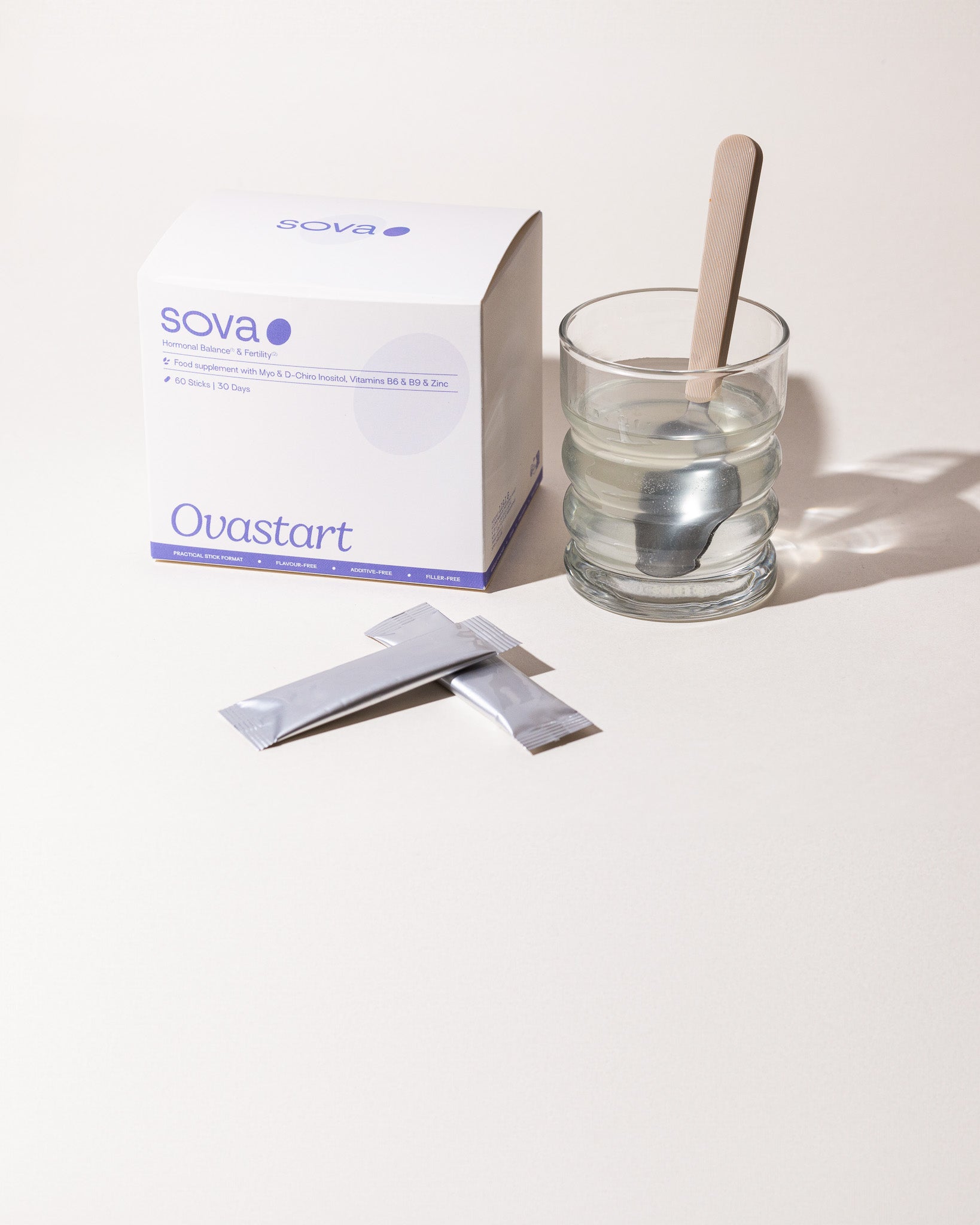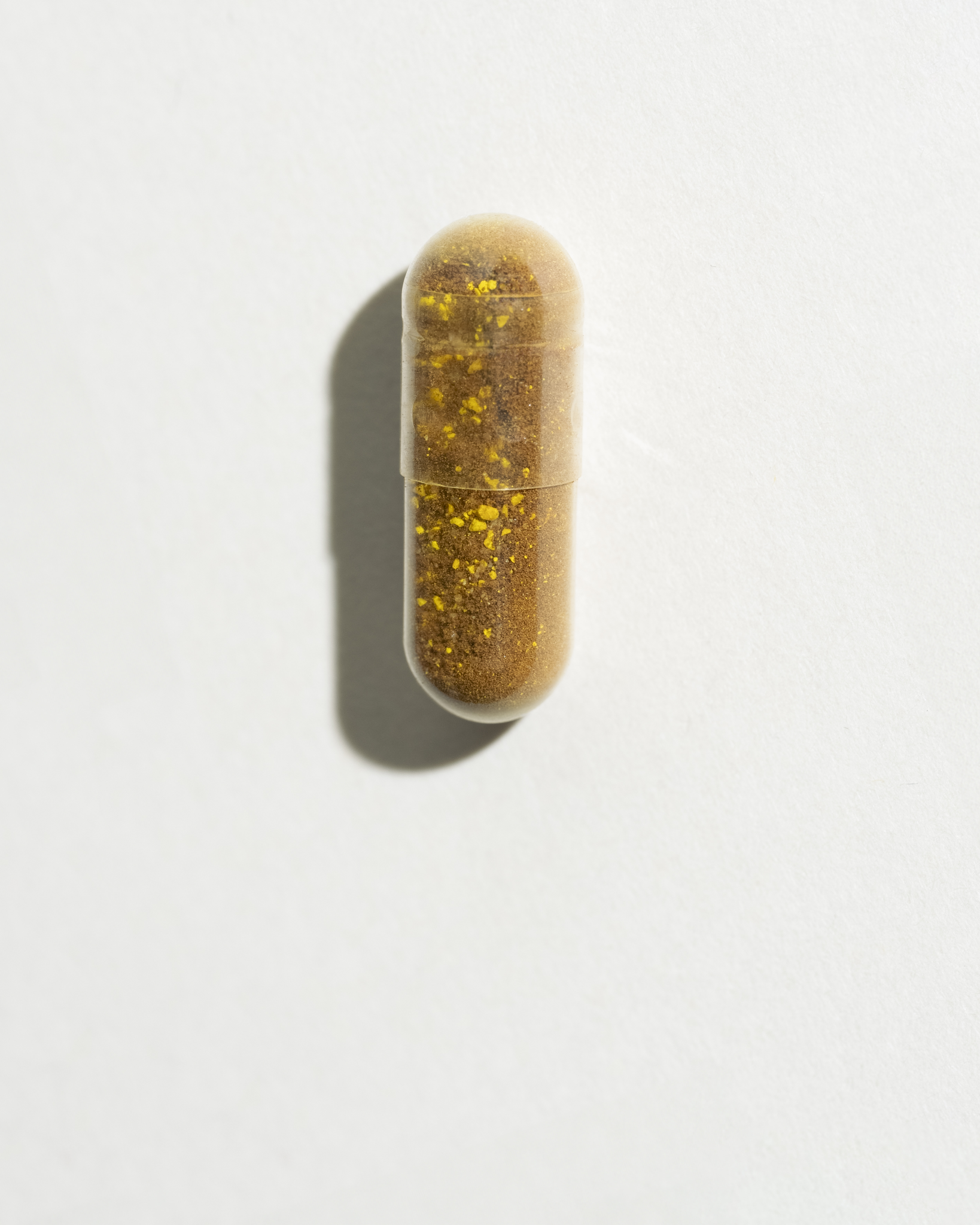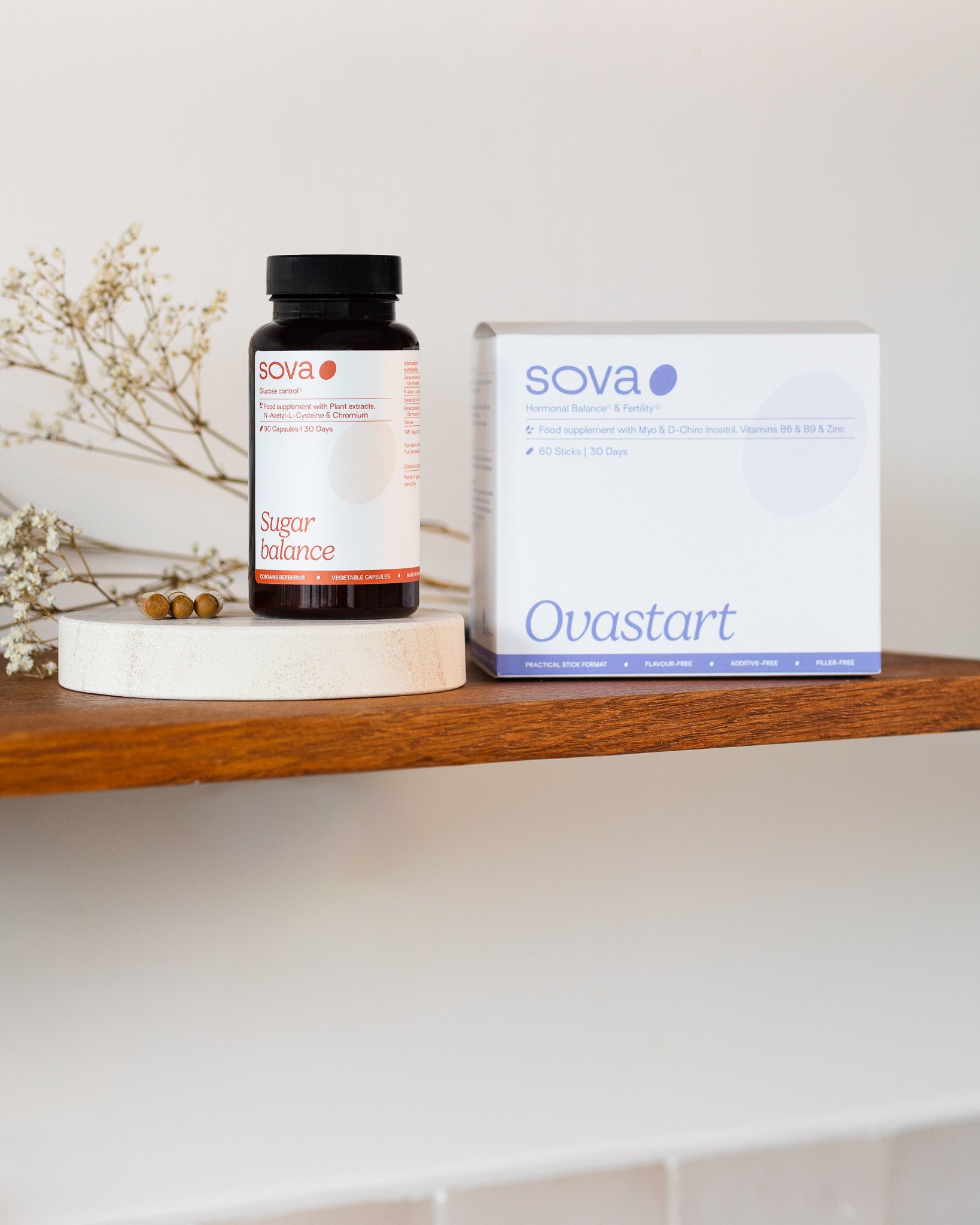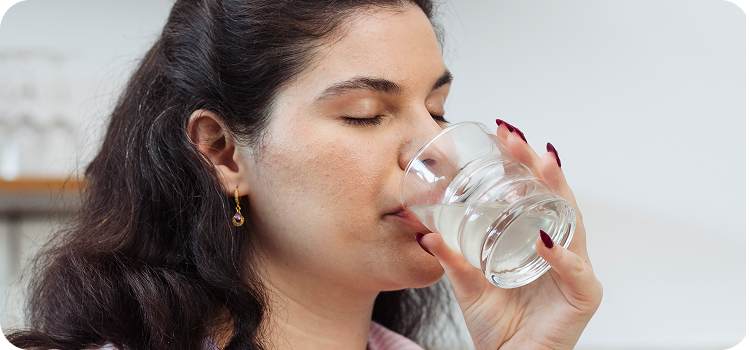Table of contents
- 01. I - What is the purpose of sleep?
- 02. II - What are the main functions of sleep?
- 03. III - Sleep and PCOS: the hormonal vicious cycle
- 04. IV - PCOS affects sleep quality
- 05. V - The Importance of the microbiome in sleep quality
- 06. VI - Our tips for improving sleep quality:
- 07. VII - Nutrition for better sleep with PCOS:
- 08. VIII - Exercise for better sleep:
- 09. IX - Relaxation techniques to achieve better sleep:
- 10. Conclusion
Sleep plays a vital role for every living being, regulating an incredible number of functions in our bodies. Promoting good quality sleep is essential for maintaining health. When dealing with hormonal imbalances, such as polycystic ovary syndrome (PCOS), looking after your sleep becomes a key aspect of lifestyle management to improve daily life. Let me explain everything in this article!
I - What is the purpose of sleep?
Sleep is crucial for overall well-being. It is divided into several phases: light sleep, deep sleep, and REM sleep.
Each phase serves a specific function. Light sleep prepares the body for deep sleep, which is critical for physical recovery. REM sleep, where dreaming occurs, is vital for mental health, memory consolidation, and learning. A good night's sleep includes several cycles of these phases, allowing both the body and mind to regenerate and prepare for the next day.

II - What are the main functions of sleep?
Sleep has numerous effects on the body and hormonal balance, but here are the main ones:
-
Thermoregulation: Sleep helps regulate body temperature, essential for the proper functioning of body systems.
-
Immune support: It boosts the immune system by promoting cytokine production, crucial for fighting infections.
-
Energy replenishment: Muscle and nerve cells restore their energy reserves during sleep.
-
Mood and stress regulation: Sleep fosters emotional stability and reduces stress responses.
-
Toxin elimination: Sleep allows the brain to clear out toxins.
-
Hormonal regulation: Sleep controls the production of important hormones, including insulin.
-
Blood sugar and appetite regulation: Sleep helps manage blood sugar levels and regulate appetite hormones.
All of these are deeply linked to PCOS symptoms. For more on this, read our article dedicated to PCOS symptoms.
III - Sleep and PCOS: the hormonal vicious cycle
Sleep disturbances affect hormonal balance and worsen certain PCOS symptoms, such as weight gain, blood sugar imbalances, sugar cravings, chronic fatigue, and stress. But since nothing is ever simple, hormonal imbalances in PCOS can also cause sleep disturbances! Let’s dive into this part to understand the relationship better.
Lack of sleep and insulin resistance
A 2010 scientific study showed that sleeping five hours a night for a week reduced cell sensitivity to insulin by 24%.In those with insulin resistance, this resistance increases sugar cravings, as the body seeks to balance blood sugar fluctuations caused by insulin resistance. These cravings also combat fatigue, reinforcing the cycle of insulin resistance. This is the first vicious circle of how sleep deprivation impacts PCOS.
To help manage this, supplements like Sugar Balance can help regulate blood sugar and reduce cravings.
Lack of sleep promotes weight gain
Have you ever heard of leptin, the satiety hormone? It is produced in large amounts during the night, which is why we rarely feel hungry while asleep. When you lack sleep, leptin levels drop, causing you to feel less full during the day. This often leads to sugar cravings for many people! To make matters worse, lack of sleep stimulates ghrelin production, the hunger hormone.
This, of course, promotes weight gain, especially if low leptin levels are combined with insulin resistance, which also triggers food cravings.
To help manage weight gain, we recommend our Balance Bundle, combining Sugar Balance and Ovastart.
Lack of sleep raises cortisol levels
At SOVA, we often talk about cortisol, the stress hormone produced by the adrenal glands, small endocrine glands located above the kidneys. These glands produce cortisol to help the body cope with physical and emotional stress throughout life.
Chronic stress causes the adrenals to produce too much cortisol, leading to burnout or adrenal fatigue. Excessive cortisol production consumes pregnenolone, which affects progesterone production—a hormone that women with PCOS are already deficient in. This worsens hormonal imbalances, cycle irregularities, and ovulation issues. Low progesterone can lead to severe premenstrual syndrome (PMS), making life harder for many women.
Lack of sleep stimulates cortisol production, increasing appetite and sugar cravings, and worsening insulin resistance. Elevated cortisol levels can intensify stress, making it harder to fall asleep and leading to wake-ups during the night.
Want to know which supplement is best for you? Take our free product quiz to get personalised recommendations.
Long-term risks:
Prolonged sleep deprivation increases the risk of hormonal disorders and metabolic issues such as diabetes, cardiovascular problems, metabolic syndrome, certain cancers, weakened immunity, depression, and chronic stress.
But don’t worry—I’ll share my tips for restoring good-quality sleep in the second part of this article!
IV - PCOS affects sleep quality
Sleep apnoea in Women with PCOS
Two studies conducted in 2017 and 2018 by respiratory researchers found that obstructive sleep apnoea hypopnoea syndrome (OSAHS) is common among women with PCOS, particularly those with abdominal obesity. These studies highlight the importance of screening for sleep apnoea in women with PCOS, especially if they are overweight, chronically fatigued, or experiencing cravings.
Pelvic pain
While sleep deprivation can worsen PCOS-related hormonal imbalances, PCOS itself can also cause sleep disturbances.Pelvic pain, cramps, ovarian inflammation, and weight gain can all cause enough discomfort to disrupt sleep. This reinforces the vicious cycle, making it essential to take care of yourself and your sleep, especially if you have PCOS. Learn more in our PCOS and Pain article.
V - The Importance of the microbiome in sleep quality
Gut health and PCOS:
Many women with PCOS suffer from gut issues, such as bloating, alternating between diarrhoea and constipation, which can range from mild to severe. These problems may stem from irritable bowel syndrome, Crohn’s disease, or ulcerative colitis. Although the connections between these conditions are not fully understood, chronic inflammation is a common feature of all of them. Unfortunately, inflammatory conditions increase the risk of other inflammatory diseases.
Gut imbalances often lead to disrupted gut flora, which worsens intestinal inflammation. This allows harmful pathogens to enter the body, contributing to many inflammatory diseases and diabetes, and aggravating insulin resistance.
So, what’s the connection to sleep? A neurotransmitter called serotonin, often known as the "happiness chemical," is largely produced in the gut! It regulates mood, sleep, and even contributes to depression when deficient. Serotonin is also the precursor to melatonin, the sleep hormone.
Here’s yet another vicious cycle:
Gut inflammation can reduce serotonin production, which in turn affects melatonin levels, leading to sleep disturbances.
This is why we recommend addressing gut issues first, even before using supplements, or alongside them, to improve their absorption and help manage your PCOS better.
Tips for Improving gut health
Taking care of your gut involves adopting an anti-inflammatory diet. For plenty of tips, check out our article on Inflammatory Type PCOS or consider using Sugar Balance, which includes NAC, known to reduce inflammation and support detoxification.
VI - Our tips for improving sleep quality:
Optimise your sleeping environment
Creating a relaxing bedroom is a small but impactful step toward better sleep. A tidy, well-ventilated room that’s neither too hot nor too cold is ideal for restful sleep. Aim for a room temperature around 18°C. If noise is an issue, consider investing in earplugs—they’re simple but highly effective!
Also, make sure your bedding is comfortable! If PCOS-related symptoms cause discomfort, investing in a good mattress and pillows can make a world of difference.
And don’t forget the well-known but often ignored advice: Beware of blue light from screens, as it stimulates brain activity, making it harder to fall asleep. Avoid screens for at least 30 minutes before bed to prevent disrupting melatonin production. (You can also activate the blue light filter on most modern devices.)
Support cortisol production with adaptogenic herbs
As you’ve learned, excess cortisol can have both short-term and long-term harmful effects on your health. That’s why, at SOVA, we search for the best active ingredients to reduce stress and regulate cortisol production.
Adaptogenic herbs, such as ashwagandha, increase the adrenal glands’ ability to regulate cortisol production in response to physical or emotional stress. They help us adapt and thrive, which is fantastic! Ashwagandha is calming, helps combat adrenal fatigue, and is an overall anti-inflammatory, especially for the gut. It can even help with insomnia and promote restful sleep.
Replenish magnesium lost due to excess cortisol
The stress of daily life and hormonal imbalances lead to excess cortisol, which increases the body’s need for certain nutrients, like calcium, while causing others, like magnesium, to be depleted. In a nutshell, during stress, calcium replaces magnesium in cells, and the latter is excreted through urine.
Signs of magnesium deficiency include:
Fatigue, trouble falling asleep, muscle cramps, tingling, dizziness, headaches, anxiety, stress, emotional sensitivity, and difficulty concentrating or remembering.
It’s important to choose a high-quality magnesium supplement that is well-absorbed by the body. Magnesium bisglycinate is one of the best, as it is highly absorbable and gentle on the gut.
B Vitamins
B vitamins are crucial for good sleep. Long-term use of the pill and smoking can hinder their absorption, leading to deficiencies. Vitamin B6, in particular, is essential for the production of melatonin, the sleep hormone. You’ll find it in Ovastart, which combines B6, active folate, and zinc — a post-pill PCOS must-have.
Melatonin:
Many supplements offer synthetic melatonin to compensate for hormonal imbalances. At SOVA, we recommend consulting a healthcare professional or naturopath before supplementing with melatonin.
VII - Nutrition for better sleep with PCOS:
Key micronutrients to include in your diet:
- Calcium: Calcium helps producing melatonin, the hormone that regulates the sleep-wake cycle.
- Food sources: Dairy products, leafy green vegetables, dried fruits, chia seeds, and sardines.
- Tryptophan: This essential amino acid is a precursor to serotonin, a neurotransmitter that has a calming effect and is later converted into melatonin.
- Food sources: Turkey, chicken, eggs, cheese, nuts, seeds, and legumes.
- Vitamin B6: Crucial for serotonin production, vitamin B6 can help improve mood and promote better sleep.
- Food sources: Fish, poultry, legumes, and bananas.
- Magnesium: helps with muscle relaxation and can enhance sleep quality by supporting healthy GABA levels, a neurotransmitter that promotes relaxation and sleep.
- Food sources: Leafy green vegetables, nuts, seeds, whole grains, and dark chocolate.
Three low-GI, tryptophan-rich snack ideas:
Having these snacks in the late afternoon can help with melatonin synthesis, preparing your body for a restful night's sleep:
-
Banana, Walnut, and Yogurt Smoothie: Bananas and walnuts are rich in tryptophan and magnesium!
-
Breadsticks and Hummus: Chickpeas in hummus provide a great source of tryptophan and plant-based protein, while the savoury snack prevents a blood sugar spike. A winning combination!
-
Homemade low-GI nut bar: Packed with omega-3s and tryptophan, it’s a perfect snack to give you an energy boost when you’re feeling peckish!
We cover this in our article on “Nutrition and PCOS: The key rules of a diet adapted to your type of PCOS”. Various foods, especially those with a low glycaemic index and anti-inflammatory properties, are recommended. If you’re keen on this topic, check out the article for more details on the best diet for PCOS.

VIII - Exercise for better sleep:
Studies show that physical exercise, especially in the morning, can help regulate cortisol levels (the stress hormone), promoting melatonin production in the evening. Regular physical activity not only improves sleep quality but also reduces stress, which is crucial for those with PCOS.
You often ask us, "What type of exercise is best for PCOS?" The answer is quite simple: the one you enjoy most!

IX - Relaxation techniques to achieve better sleep:
Breathing Techniques: Focus on Heart Coherence
Heart coherence is a breathing technique that can help reduce cortisol levels, promoting relaxation conducive to sleep. The "Cohera" app is great for guiding you through this rhythm smoothly.
Guided Meditation
Meditation helps calm the mind, reduce stress, and improve sleep quality. Guided meditation, available through apps or in group settings, is a great way to clear your mind and encourage a state of calm.
Sophrology
Sophrology is a relaxation method combining breathing techniques, visualisation, and muscle relaxation. It can help reduce stress and improve sleep quality.
Conclusion
In summary, sleep plays an essential role in regulating hormones and maintaining overall health. Women with polycystic ovary syndrome (PCOS) are particularly vulnerable to sleep disturbances, which can in turn worsen PCOS symptoms.
It is therefore crucial to adopt a holistic approach to improve sleep, including dietary adjustments, physical exercise, and practising relaxation techniques. Taking care of your body and mind is vital for maintaining optimal hormonal balance and enhancing your quality of life on a daily basis.
💡 Take our free quiz to get personalised advice on which product (Ovastart, Sugar Balance or both) could support your sleep, energy, and hormonal balance.
Scientific references
SOVA was created by two sisters with PCOS who wanted products that truly worked. Our formulas are developed in-house with women’s health and micronutrition experts, using ingredients backed by clinical studies and compliant with European regulations.
- Built by women with PCOS, we know the reality of the symptoms.
- Clinically studied, high-quality ingredients, including patented forms like Quatrefolic® and an optimal Myo-/D-Chiro Inositol ratio.
- Holistic support for hormonal balance, metabolic health, inflammation, mood and cycle regulation.
- Transparent, science-led formulas with no unnecessary additives.
